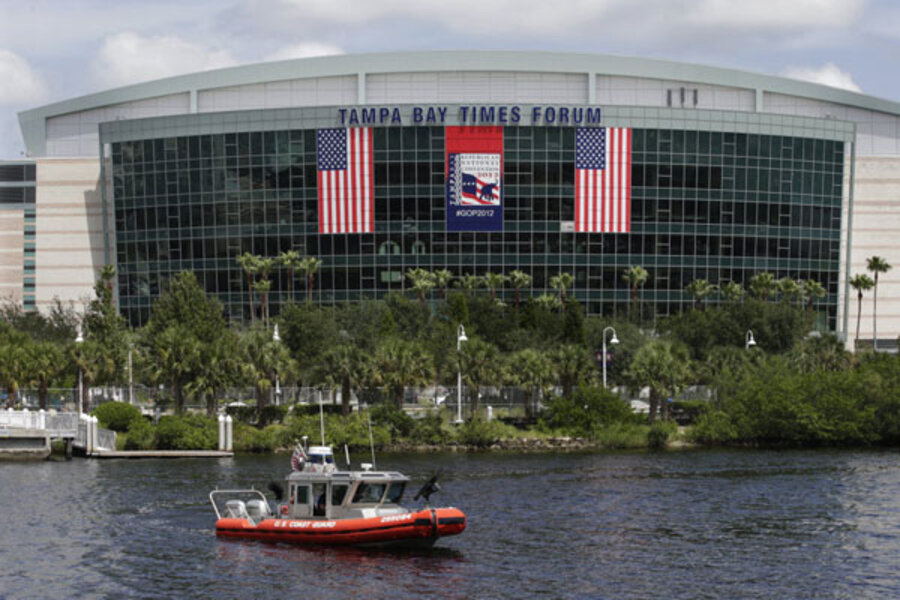Tampa city leader: 'We knocked it out of the park'
Loading...
| TAMPA, Fla.
After two years of planning, tens of millions of dollars and four days of non-stop politics,Tampa city leaders are ecstatic with the results of the Republican National Convention.
"We could not have done it any better than we did," said Tampa Mayor Bob Buckhorn during a news conference on Friday, almost giddy after three hours of sleep.
He and Police Chief Jane Castor said only two protesters were arrested and no other public safety incidents happened during the convention, which lasted four days and was briefly put on hold by the threat of then-Tropical Storm Isaac.
"The city stood up and stood tall while the world was watching," Buckhorn said of the Gulf Coast city. "We just knocked it out of the park."
Buckhorn insists that the convention will "set this community up for great things down the road."
What those things are — and when they will happen — is another matter.
"Time will tell," said Buckhorn, adding that the long-term impact of the convention might take decades to emerge.
For months, city leaders and GOP host committee officials have insisted that Tampa would reap the benefits of having a convention in its city. Buckhorn estimated that the event would generate some $150 million to $175 million in revenue, from the security expenses to delegate spending to the host committee contracts with local caterers and other businesses.
Buckhorn and other city officials also think that the convention and the media attention will eventually draw business and tourists to the Tampa Bay area, which already boasts tourist attractions such as the Busch Gardens theme park and miles of beaches, not to mention being the home of NFL and Major League Baseball franchises.
Experts who have studied the economic impact of political conventions and other large events like the Olympics say that yes, host cities do reap a short-term economic windfall — but that the loss of local, regular business isn't always factored in to those figures.
"No one in their right mind goes anywhere close to a national political convention unless they're associated with the event itself," said Victor Matheson, an economics professor at College of the Holy Cross in Worcester, Mass., who has studied the effects of large events on cities. "Regular activity and regular tourism disappears."
Matheson added that even anecdotally, he hasn't seen much evidence that big events like a convention draw businesses seeking to relocate.
"I don't know of a single corporation moving their headquarters to a city because of an RNC," he said.
To be sure, some businesses — such as caterers, car services and hotels that served the tens of thousands of delegates and media members — did booming sales over the past few weeks.
But some downtown Tampa businesses complained about the lack of foot traffic during the convention.
"I went from 30,000 people walking by my store every day and having plenty of customers to basically having zero — except for law enforcement, curiosity seekers and a few actual conventioneers," Robert Szasz, the manager of Tropical Smoothie Cafe, told The Associated Press earlier in the week.
By Thursday, many downtown restaurants were packed by day. Private parties and a roving band of protesters meant that downtown also buzzed with activity at night.
Because of potential traffic issues, parking problems and protesters, many downtown businesses told workers that they could telecommute during the convention — so the people who normally eat and shop downtown were absent. Couple that with a few rainy days due to Tropical Storm Isaac and the fact that much of downtown was barricaded off and patrolled by hundreds of officers, the area just outside of the convention was a dead zone for much of the week.
Congress gave the city $50 million for security and the city amassed 4,000 police from around Florida to patrol the streets for the event.
Michael Long, a local activist with the Florida Consumer Action Network, praised the police for their evenhanded attitude toward protesters. But he wonders if the officials' constant discussion beforehand about security was the proper strategy.
"It might have scared people away, both from protesting and doing business downtown," he said.







